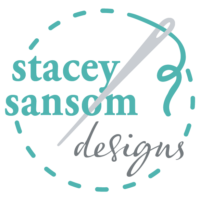I read an interesting article today. It was fairly simple. It was mostly based on a list. The article was entitled “The 10 Reasons Why I Ignored Your Resumé” (Mike Volpe, July 16, 2014, http://mashable.com/2014/07/16/ignored-resume/?utm_cid=mash-com-fb-main-link).
In the article, the author lists 10 reasons (obviously) why they would not select the candidate for the job based on things that are found in their résumé. I found this interesting because so many of these things ring true in other industries as well as it stops us in the freelance industry a lot. When I am dealing with small business owners, some of these things hold them back and they do not want to admit to it. They do not want to face these things. The reality is, these things do hold them back whether they want to face facts or not.
I want to go through the things the articles point out here and address them in relation to small businesses and web and/or graphic design work. That is what people hire me to do (or I hope they will hire me for) and I want to help people understand just how important it is to present themselves as a whole. If people are getting looked over in corporate America (and elsewhere) because of these things, I promise you are getting looked over in the small business and freelance industries.
The author’s “top 10 list” so to speak included (some paraphrased and/or rephrased):
- Using a Hotmail or AOL email account
- The inability to be found in Google
- Your last tweet was in 2011
- Your Facebook profile is questionable
- Your LinkedIn picture is a selfie
- The only number on your résumé is your phone number
- You only speak business
- Your last written piece was in your college days
- You applied for every position open
- You forgot to personalize your résumé.
Now we all want to feel good about ourselves and so we may embellish and exaggerate a little bit, but when we are talking about getting a job in the corporate world or trying to have someone hire us as a freelancer, we should be fairly close to what we say “is in the package.” Let me address the above items as the author mentions them and how I see them as they apply to me and people I try to help on a regular basis.
- Email – The author pretty much states how I feel. If you are trying to present yourself as professional, be professional. He tries to pull at those heartstrings and tells you it is okay if you hang onto the gmail accounts. Yes and no. If you have your business, get your own domain and use your own related email address. That does not mean use crazyq@businessdomain.com, it means use something professional, unless of course your name is really CrazyQ. Then by all means, please use CrazyQ. The point is, to be professional, you need to look professional. As the author stated it, we “should see into the future, not live in the past.”
- Google – Believe it or not, Google search results are not about a popularity contest when it comes to finding basic information about someone. If you exist in this world today in the 21st century and are under a certain age bracket, you should be searchable in Google. This means that you are not an ostrich and you do not spend more time with your head stuck in the sand than you do living your life like at least 50% of your peers. I am being generous with that number. I would expect at least 90% of your peers are searchable in Google. Do a quick search in Google for your first and last name. What comes up? If you do not come up in the first 3-4 pages, you need to rectify that. You especially need to rectify that if you are looking for a job or are trying to break into doing some freelance work. People will research you and they are likely to use Google to do it.
- Your last tweet – If you claim to be a “technology guru” you better be a technology guru. This does not mean that you have to use every social media platform or be everywhere, but if you claim to know technology and the only thing that comes up with a Google search is that your last tweet was in 2011, you are not going to look very impressive. You either need to close your Twitter account or reconsider your “label” for yourself as “technology expert.” Now if you have other platforms that are currently active and do come up in spite of your last tweet being several years ago, you will probably be fine. Twitter is not for everyone. I get that. In that case, I highly recommend that you cut your losses with Twitter and just go ahead and close your account. You have not used it anyway, but carry around the extra baggage? On the other hand, you do not have to be an active conversationalist to be an active Twitter user. You simply need to keep your Twitter Feed active and share things that are of interest to your “followers.”
- Questionable Facebook Profile – Your Facebook profile is representative of you. This representation is you personally and professionally. You should be careful what you post at all times. This includes all questionable poses, drinks you may have, habits you may have, posts that others may associate you with, etc. If you down a keg of beer at a party on a weekly basis, this may not look good to any employer or contractor in your future. Please post responsibly.
- LinkedIn Photos – The author clearly reminds us that LinkedIn by definition of its purpose is for professional use. A selfie by definition of is origin is not professional, it is fun and lighthearted. The two should not be used in conjunction with one another. If you are using your last selfie as your LinkedIn photo, please go remove it right now. You should remove it immediately if your picture is one of you in a string bikini, unless of course you are looking for bikini modeling jobs. If you are holding a can or bottle or beer, please run, do not walk and remove your picture and replace it with a more professional picture unless you are looking for beer advertising jobs. Again, post responsibly.
- Numbers on your résumé – We live in a time when people want to know what you can do for them. This includes statistics and numbers. You should include these numbers and let people know what you can do for them. What kind of impact have you had in the things you have worked on?
- You only speak business – Business speak can get really hard to understand sometimes when you move from one industry to another, or even from one department to another inside the same industry. The marketing department may not know anything about the engineering lingo. Please keep it simple and concise. When you are “marketing” yourself remember to keep this in mind and speak clearly to explain what you did without the business speak. Pretend you describing it to a stranger in as few words as possible. What words would you use then? Make me understand, do not confuse me.
- Writing – Keep writing so that you do not look like you just graduated from college and your most recent writing piece was the last term paper you wrote in college. Writing establishes you as an expert in the industry and helps you share your knowledge. Writing can help give clarity to your thoughts and helps gets valuable ideas out of your head and onto paper.
- Applying for every position – If you want to alert someone that you are desperate, apply to every position available. That should speak for itself. Apply for the positions you qualify for, not every single position.
- Personalization – You should personalize your résumé to fit each application. You should personalize each job proposal, etc. If you are trying to make yourself stand out, do not use your standard form letter, etc. You can, but make sure you change things up so that it does not read like a form letter. Especially make sure that all references to any other companies or parties that are not the party you are speaking/applying to are removed. Keep it personal to just the parties involved.
If you do these simple things, you will look more professional. It will not guarantee that you will land the next job, it will simply make you look more enticing. You have to load your résumé with everything that will make it look like you are the best candidate for the job. Only you can do that.

